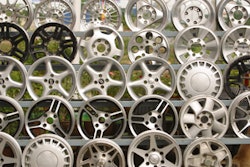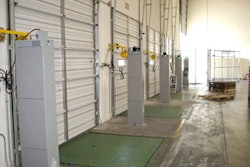Shanghai — December 4, 2007 — Fifty-three percent of companies operating in major Chinese cities said they expect an increase of business travel expenses in 2008 due to growth in the development of business and trade in China and within Asia Pacific, according to the results of a new survey.
The China business travel market is also maturing, with increased focus on travel and entertainment (T&E) management, according to American Express Business Travel, which announced the results of its 2007 China Business Travel Survey ("The Barometer") at its third China Business Travel Forum (CBTF).
The Barometer was conducted by Research International from May to August 2007, interviewing 230 Chinese and foreign companies with 100 and more employees in six key industries in Shanghai, Beijing and Guangzhou. Findings of The Barometer provided organizations, vendors and suppliers with the latest information of the T&E management practices and outlook of the market for 2008 in China.
T&E Budgets Rising
The Barometer shows continued growth in T&E expenses in China, with 46 percent of companies experiencing increases in their T&E budgets, as compared to last year at this time, when only 28 percent of companies had experienced growth in their T&E budgets.
The Chinese business travel market is very similar to the U.S. market insofar as it is self-sufficient and the majority of expenditure takes place domestically — 69 percent of expenditure takes place in Mainland China.
T&E expenditure remains the second largest controllable cost for companies within China. The percentage of employees going on business trips is up from 28 percent in 2006 to 33 percent in 2007, and 60 percent of employees are generating T&E expenditure compared to 56 percent in 2006. Meals & entertainment continued to be the largest portion of business travel expenses, followed by air travel and hotel/accommodation.
More Focus on Controlling Costs
The Barometer reveals that companies in China have been paying greater focus in optimizing and controlling T&E expenses, showing that business travel market in China has become more mature and structured over the last few years. More companies have policies for controlling T&E expenditure — 81 percent of the companies surveyed indicated that they have a T&E policy, up from 70 percent last year.
Compliance rates for T&E policies are improving, too: This year 47 percent of companies have a compliance rate above 50 percent, up from 28 percent of companies last year, with similar compliance rates for both Chinese and foreign owned companies.
In addition, 86 percent of companies surveyed measure the efficiency of their T&E policy, compared to 69 percent in 2006. The most common method used by companies measuring their T&E policies is measuring whether or not expenditure is in line with the T&E policy, that is, whether travelers are using preferred suppliers and using negotiated fares for air travel.
Travel Becoming More Managed
Business travel is becoming more managed as more and more rates for air travel and hotel accommodation are negotiated, and 93 percent of companies have rules for air travel compared to 87 percent in 2006, while 93 percent also have rules for hotels compared to 90 percent last year.
Almost half of the companies surveyed are using a travel agency for business travel, compared to 34 percent in 2006. However, more foreign-owned companies are using travel agencies than Chinese owned companies.
"We are impressed by the strong growth momentum of business travel in China, and its rapid pace in developing into a managed business travel market," said Gregor Lochtie, vice president and general manager for Greater China with American Express Business Travel and general manager for China with CITS American Express Business Travel. "From The Barometer, we saw that companies operating in China have paid more attention than before to look for opportunities to optimize and control their T&E expenses, an investment that can improve their bottom line."
Lochtie said that American Express should be well positioned to capitalize on this growth opportunity and assist companies with business travel management solutions.
Internet Booking Use Increasing
The Barometer also captured opportunities for corporations in China to optimize maximum control over T&E spending. The Internet is becoming a much more important means of booking business travel because it is convenient, easy to use and fast, according to the survey respondents, with 61 percent saying they use online tools, up from 37 percent last year. New online tools that can provide maximum convenience, flexibility and efficiency will be welcomed by corporations.
While more companies are using a travel agency for business travel (48 percent this year versus 34 percent in 2006), only 15 percent of companies use a sole travel agency for business travel, with the vast majority using two or more. In such a situation, companies are not benefiting fully from using a travel agency since expenditures are spread over a number of agencies, making costs more difficult to control.
The main selection for an agency criteria remain the competitive price for each ticket bought, with national coverage being the second most important criteria. In fact, companies should also leverage the travel management consultancy capabilities of travel agencies, which is not yet a priority for most companies, according to American Express.
Cash Still King
Cash remains the most common method of payment for companies operating in China, and the use of corporate cards had declined, all indicating a need for further education on the advantages of modern payment methods that enable companies to have a central billing system for all expenditure carried out by their employees, American Express said.
"T&E expenditure is an important element in doing business and it continues to increase for companies in China," said Lochtie. "It is thus critical for companies to optimize maximum control and identify cost saving opportunities."
Lochtie said that American Express would be capitalizing on its knowledge in this space and building on its successes to date in the market to help companies improve their T&E practices and achieve their T&E management goals. "We have the core values which corporations are looking for in a travel agency as indicated by The Barometer: global coverage, reliability and quality customer services," Lochtie concluded.
Established by American Express and China International Travel Service (CITS) in 2002, CITS American Express Business Travel was the first Sino-U.S. business travel joint venture in the People's Republic of China. With offices in Beijing, Shanghai and Guangzhou, the joint venture provides business travel management services for multinational corporations, regional and domestic companies throughout the PRC.
The China business travel market is also maturing, with increased focus on travel and entertainment (T&E) management, according to American Express Business Travel, which announced the results of its 2007 China Business Travel Survey ("The Barometer") at its third China Business Travel Forum (CBTF).
The Barometer was conducted by Research International from May to August 2007, interviewing 230 Chinese and foreign companies with 100 and more employees in six key industries in Shanghai, Beijing and Guangzhou. Findings of The Barometer provided organizations, vendors and suppliers with the latest information of the T&E management practices and outlook of the market for 2008 in China.
T&E Budgets Rising
The Barometer shows continued growth in T&E expenses in China, with 46 percent of companies experiencing increases in their T&E budgets, as compared to last year at this time, when only 28 percent of companies had experienced growth in their T&E budgets.
The Chinese business travel market is very similar to the U.S. market insofar as it is self-sufficient and the majority of expenditure takes place domestically — 69 percent of expenditure takes place in Mainland China.
T&E expenditure remains the second largest controllable cost for companies within China. The percentage of employees going on business trips is up from 28 percent in 2006 to 33 percent in 2007, and 60 percent of employees are generating T&E expenditure compared to 56 percent in 2006. Meals & entertainment continued to be the largest portion of business travel expenses, followed by air travel and hotel/accommodation.
More Focus on Controlling Costs
The Barometer reveals that companies in China have been paying greater focus in optimizing and controlling T&E expenses, showing that business travel market in China has become more mature and structured over the last few years. More companies have policies for controlling T&E expenditure — 81 percent of the companies surveyed indicated that they have a T&E policy, up from 70 percent last year.
Compliance rates for T&E policies are improving, too: This year 47 percent of companies have a compliance rate above 50 percent, up from 28 percent of companies last year, with similar compliance rates for both Chinese and foreign owned companies.
In addition, 86 percent of companies surveyed measure the efficiency of their T&E policy, compared to 69 percent in 2006. The most common method used by companies measuring their T&E policies is measuring whether or not expenditure is in line with the T&E policy, that is, whether travelers are using preferred suppliers and using negotiated fares for air travel.
Travel Becoming More Managed
Business travel is becoming more managed as more and more rates for air travel and hotel accommodation are negotiated, and 93 percent of companies have rules for air travel compared to 87 percent in 2006, while 93 percent also have rules for hotels compared to 90 percent last year.
Almost half of the companies surveyed are using a travel agency for business travel, compared to 34 percent in 2006. However, more foreign-owned companies are using travel agencies than Chinese owned companies.
"We are impressed by the strong growth momentum of business travel in China, and its rapid pace in developing into a managed business travel market," said Gregor Lochtie, vice president and general manager for Greater China with American Express Business Travel and general manager for China with CITS American Express Business Travel. "From The Barometer, we saw that companies operating in China have paid more attention than before to look for opportunities to optimize and control their T&E expenses, an investment that can improve their bottom line."
Lochtie said that American Express should be well positioned to capitalize on this growth opportunity and assist companies with business travel management solutions.
Internet Booking Use Increasing
The Barometer also captured opportunities for corporations in China to optimize maximum control over T&E spending. The Internet is becoming a much more important means of booking business travel because it is convenient, easy to use and fast, according to the survey respondents, with 61 percent saying they use online tools, up from 37 percent last year. New online tools that can provide maximum convenience, flexibility and efficiency will be welcomed by corporations.
While more companies are using a travel agency for business travel (48 percent this year versus 34 percent in 2006), only 15 percent of companies use a sole travel agency for business travel, with the vast majority using two or more. In such a situation, companies are not benefiting fully from using a travel agency since expenditures are spread over a number of agencies, making costs more difficult to control.
The main selection for an agency criteria remain the competitive price for each ticket bought, with national coverage being the second most important criteria. In fact, companies should also leverage the travel management consultancy capabilities of travel agencies, which is not yet a priority for most companies, according to American Express.
Cash Still King
Cash remains the most common method of payment for companies operating in China, and the use of corporate cards had declined, all indicating a need for further education on the advantages of modern payment methods that enable companies to have a central billing system for all expenditure carried out by their employees, American Express said.
"T&E expenditure is an important element in doing business and it continues to increase for companies in China," said Lochtie. "It is thus critical for companies to optimize maximum control and identify cost saving opportunities."
Lochtie said that American Express would be capitalizing on its knowledge in this space and building on its successes to date in the market to help companies improve their T&E practices and achieve their T&E management goals. "We have the core values which corporations are looking for in a travel agency as indicated by The Barometer: global coverage, reliability and quality customer services," Lochtie concluded.
Established by American Express and China International Travel Service (CITS) in 2002, CITS American Express Business Travel was the first Sino-U.S. business travel joint venture in the People's Republic of China. With offices in Beijing, Shanghai and Guangzhou, the joint venture provides business travel management services for multinational corporations, regional and domestic companies throughout the PRC.














